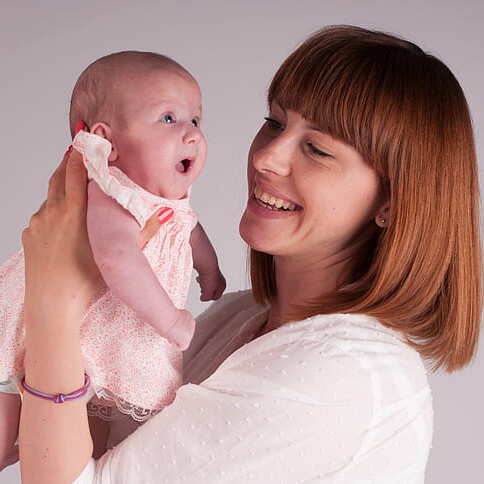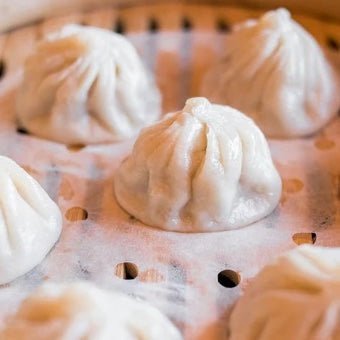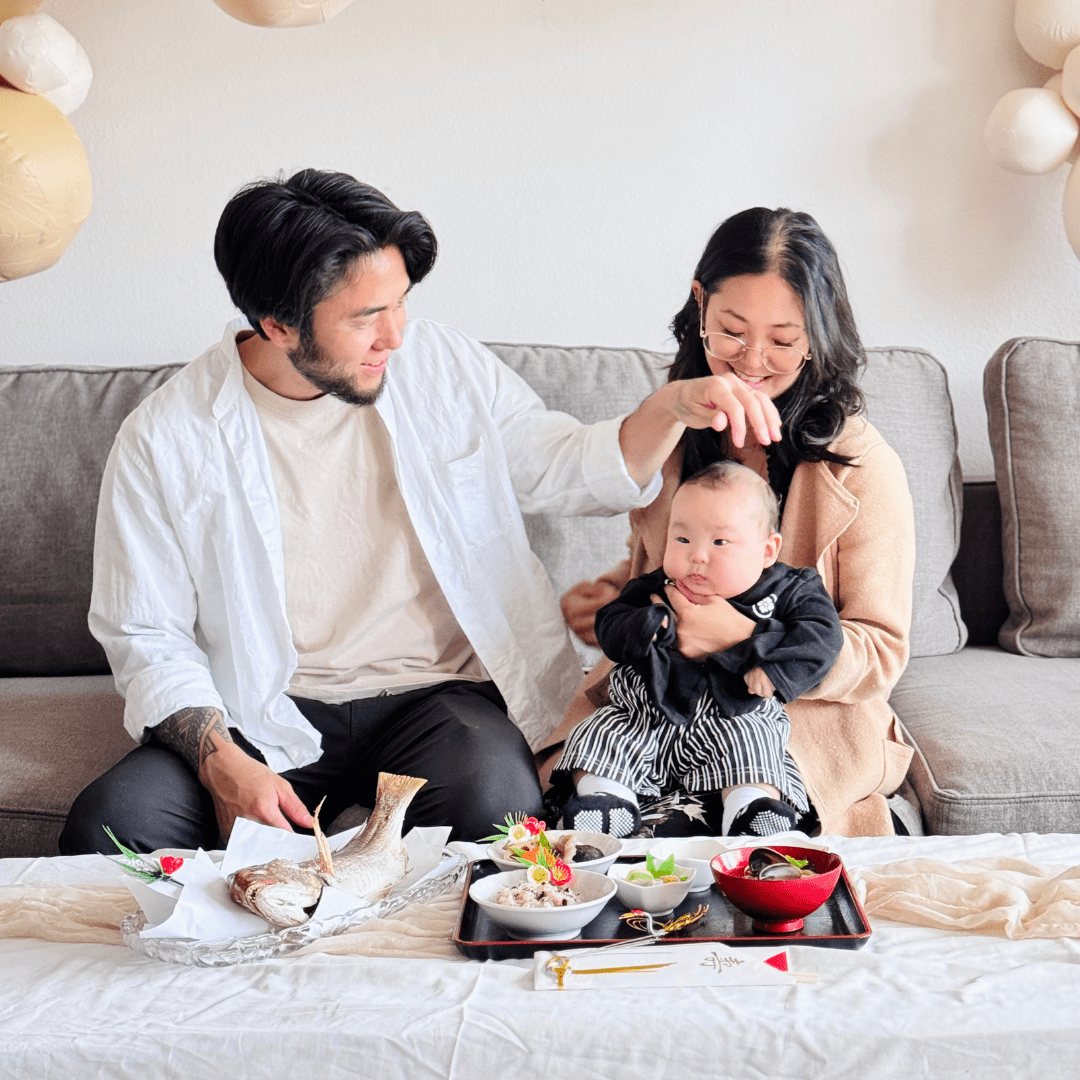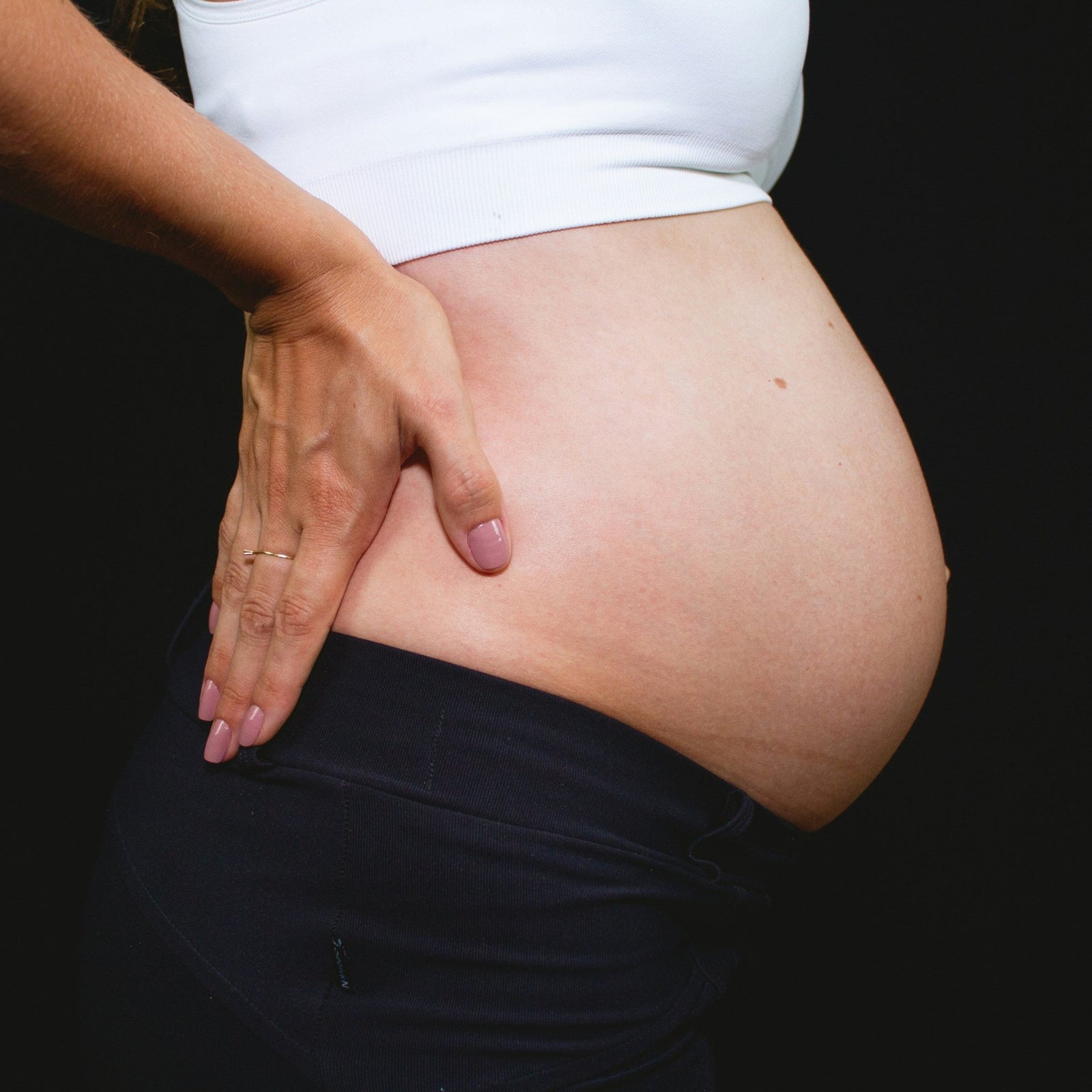Your Cart is Empty
Gift Sets
Categories

What to Prepare for Your Baby’s Arrival: A Complete Guide for the First 3–6 Months
by Adrian Ma September 27, 2025 6 min read
Welcoming your newborn is one of the most exciting—and yes, overwhelming—chapters of parenthood. Those early months are full of sleepless nights, countless diapers, adorable milestones, and plenty of learning curves. The good news? With a little preparation, you can set yourself (and your baby) up for a smoother transition.
In this comprehensive guide, we’ll walk you through exactly what to expect in the first three to six months, what essentials you’ll truly need, and tips that can help make this journey less stressful and more joyful.
1. Diaper Usage & Care
One of the first things new parents quickly realize is just how many diapers a newborn goes through in a single day. Diapering becomes one of the most frequent and necessary caregiving tasks, but it’s also an opportunity to bond with your baby and establish routines that keep them clean, comfortable, and rash-free.
What to Expect:
-
Newborns (0–3 months): Expect10–12 diaper changes per day. Pee is frequent, and bowel movements can range from multiple times a day to once every few days.
-
3–6 months: Usage decreases to8–10 diapers daily as feeding intervals spread out.
-
After solids (~6 months): Expect changes in texture, color, and smell of stools.
Changes in Poo/Pee:
-
Before Solids:
-
Breastfed babies → mustard-yellow, runny stools.
-
Formula-fed babies → firmer, tan or brown stools.
-
After Solids:
-
Darker, thicker, and smellier stools. You may also see bits of undigested food, which is normal.
Pro Tips:
-
Lift elastic flaps snugly to prevent leaks.
-
For baby boys, cover with a cloth during changes to avoid unexpected sprays.
-
Use diaper changes as bonding time—talk, sing, or make silly faces.
-
Stock multiple diaper sizes to keep up with growth spurts.
-
Always keep adiaper rash cream handy.

2. Sleeping Patterns & Routines
Sleep is one of the most talked about aspects of early parenthood because it shapes almost every part of your day and night. Understanding what’s normal and learning to manage expectations helps reduce stress and supports your baby’s healthy development.
What to Expect: Newborns average16–18 hours of sleep per day—but not in long stretches. Sleep improves gradually over the first six months.
From 0–3 Months:
-
Weeks 1–2: Fragmented sleep, waking every 1.5–3 hours.
-
Weeks 3–6: Slightly longer stretches, waking every 2–4 hours.
-
Weeks 6–12: Some babies may sleep4–5 hours at night, with naps lasting 30 minutes to 2 hours.
Tips for Better Sleep:
-
Create abedtime routine (bath, book, lullaby, swaddle).
-
Always place baby on theirback to sleep.
-
Keep the sleep environment cool, dark, and quiet.
-
Limit stimulation at night to teach day/night cues.
Must-Have Sleep Essentials:
-
Swaddles: The Wee Bean’sOrganic Bamboo Cotton Swaddles are breathable, soft, and multi-use. They mimic womb-like snugness, helping babies settle and sleep longer.
-
Functional Rompers: Choose ones withreversible zippers (like The Wee Bean’s Convertible Zip Rompers) for quick diaper changes. Built-in mitts and footies eliminate the need for extra socks or scratch mittens.

3. Feeding: Breast, Bottle & Solids
Feeding your newborn is one of the most intimate and essential parts of early parenting. Whether you choose to breastfeed, formula feed, or a combination of both, it’s important to remember that every baby’s needs and appetite will vary. Feeding also evolves quickly, so being prepared helps smooth the transition from milk to solids.
What to Expect:
-
Breastfed babies: Feed every2–3 hours.
-
Formula-fed babies: Feed every3–4 hours.
-
Introducing solids (~5–6 months): Look for readiness signs like:
-
Sitting with support.
-
Holding head steadily.
-
Showing interest in food.
-
Opening mouth when a spoon is offered.
Tips for Smooth Feeding:
-
Stay hydrated and nourished to support milk supply.
-
Join a breastfeeding support group for encouragement.
-
Don’t stress if feeding feels difficult—it gets easier with time.
Useful Feeding Items:
-
Nursing Pillow: Helps with positioning and comfort.
-
Bibs: Babies drool most between 3–6 months and again during teething. The Wee Bean’sOrganic Cotton Bibs protect skin from rashes and feature adjustable buttons to grow with your baby.
-
Bottles & Pacifiers: Start with a few brands—babies have preferences.
4. Baby Gear Essentials
Preparing for a newborn can feel overwhelming with all the products marketed to new parents. The truth is, you don’t need every gadget out there. Instead, focus on a few key essentials that will support your baby’s comfort and your family’s lifestyle. Investing in versatile and durable items means you’ll get the most use while keeping things simple.
Clothing:
-
Opt for soft, breathable, organic cotton like The Wee Bean’s onesies.
-
For newborns, chooseside-snap kimono styles to avoid pulling clothes over their wobbly heads.
Gear Checklist:
-
Diaper Bag: Multiple compartments + easy to clean.
-
Baby Monitor: Reliable connection and video options.
-
Stroller: Choose based on lifestyle:
-
City living: lightweight, compact fold.
-
Suburban/outdoors: sturdier wheels for uneven terrain.
-
Car Seat: Must-have for safe transport.
Tips:
-
Test bottles before bulk buying.
-
Skip unnecessary gadgets (like wipe warmers) unless you truly want them.
-
Parenting forums are goldmines for gear reviews and hacks.

5. Self-Care for Parents
The early weeks and months of parenting often shift the focus entirely onto the baby, but it’s equally important to care for yourselves. Parenthood transforms your daily routines and emotional landscape. By recognizing this and making space for your needs, you’ll be better equipped to nurture your baby.
What to Expect:
-
Physical Exhaustion: Frequent night wakings = fatigue. Nap when your baby naps.
-
Emotional Rollercoaster: It’s normal to feel joy, stress, anxiety, and even sadness. Postpartum emotions are real—don’t ignore them.
-
Shifted Priorities: Your lifestyle will change, but balance will return over time.
Tips for Staying Balanced:
-
Surround yourself with supportive family and friends.
-
Communicate openly with your partner.
-
Schedule at-home “date nights” after bedtime.
-
Keep small hobbies alive—reading, journaling, short walks.
6. Baby Health & Safety Basics
Your baby’s health and safety will naturally be at the top of your mind. Establishing a safe environment and keeping up with wellness checks lays the foundation for their growth and development. Knowing what to prioritize can help ease your mind as a new parent.
Wellness Checks: Expect frequent pediatric visits during the first 6 months for growth monitoring and vaccinations.
Safety Must-Dos:
-
Keep sleep surfaces free from pillows, blankets, or toys.
-
Baby-proof gradually—start with outlets, cords, and sharp corners.
-
Always supervise tummy time.
First Aid Kit Essentials:
-
Digital thermometer.
-
Baby nail clippers.
-
Nasal aspirator.
-
Gentle baby lotion (look for hypoallergenic formulas).
7. Eco-Friendly Parenting Choices
Parenting today comes with the opportunity to make sustainable choices that benefit both your baby and the planet. Eco-friendly products are not only gentle on sensitive newborn skin but also reduce waste and support ethical manufacturing practices. Choosing wisely ensures you’re investing in items that last longer and do more.
Eco-Friendly Essentials:
-
Organic Fabrics: Softer on delicate skin and better for the environment.
-
Reusable Swaddles & Bibs: Multipurpose = fewer products needed.
-
Thoughtful Gifting: Ready-made eco baby gift sets (like The Wee Bean’s) simplify gifting without compromising quality.

Conclusion: Embrace the Journey
The first six months with your newborn will be a blur of late nights, precious snuggles, and countless “firsts.” While no amount of preparation covers every curveball, having the right essentials—and realistic expectations—makes the transition smoother.
Above all, remember:every baby is unique. There’s no one “perfect” way to parent. Trust your instincts, lean on your support system, and take each day as it comes. You’ve got this!
—----------------------------------------------
FAQ: Preparing for Your Baby’s Arrival
1. What do I need to prepare before my baby arrives?
Focus on newborn essentials such as diapers, swaddles, onesies, bibs, a safe sleep setup, a diaper bag, and a car seat. Don’t forget parent self-care items like snacks, water bottles, and comfortable clothing.
2. How many diapers will my newborn use per day?
Newborns typically need 10–12 diapers daily, dropping to 8–10 after the first few months. Stock up in multiple sizes since babies grow quickly.
3. How long do newborns sleep each day?
In the first 3 months, babies sleep about 16–18 hours a day in short stretches of 1.5–3 hours. By 3–6 months, some may sleep longer stretches of 4–5 hours at night.
4. When should I start introducing solid foods?
Most babies are ready for solids around 5–6 months. Look for signs like sitting with support, steady head control, and interest in food.
5. What eco-friendly baby products should I consider?
Choose organic cotton or bamboo baby clothing, reusable swaddles, and adjustable bibs. Eco-friendly gift sets and multi-use baby gear also reduce waste and are gentle on your baby’s skin.
Leave a comment
Comments will be approved before showing up.
Also in Latest Blog Posts

Delicious Dim Sum: A Culinary Journey Through Chinese Cuisine
by Adrian Ma September 17, 2025 4 min read
Discover Dim Sum, a cherished Chinese tradition symbolizing togetherness and flavor. Explore its history and iconic dishes like Har Gow and Char Siu Bao. Dive into the world of Dim Sum and discover its history, cultural significance, and how it has inspired The Wee Bean's unique line of organic baby clothing.
Read More
Bean of the Month - Aug 2025
by Yanni Wong August 31, 2025 3 min read
Meet Jude Riku Hamamura, a lively 6-month-old from Southern California—our August Bean of the Month!
Jude’s whole family calls Southern California home! Mama and Jude were born in Torrance, while Dad hails from Long Beach. What makes their story even more special is that Mama and Dad have known each other since grade school—over 30 years of friendship turned into family love. Jude is their little miracle baby, conceived through IVF after a challenging journey that made every moment with him even more precious.
Sending lots of love to Jude and his family as they continue to celebrate their precious little miracle and all the moments that make motherhood so special. 🧡

Postpartum Body Image: How to Reclaim Confidence and Embrace Your New Self
by Adrian Ma August 14, 2025 5 min read
Motherhood changes everything—including how we see ourselves. Many moms silently carry guilt for even thinking about their postpartum body image, believing that sharing these struggles is selfish. However, the truth is that these feelings are valid and deserve to be acknowledged.
Recently viewed products
Sign up to get 15% OFF your first order
Sign up to get the latest on sales, new releases and more …
